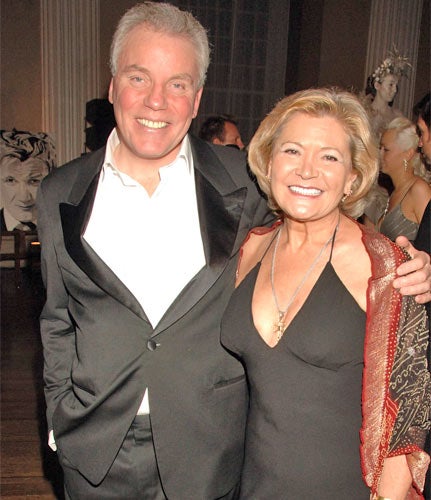Ramsay's father-in-law loses bid to keep his second family secret
Among the last to hear, before the case went to court, was Mr Hutcheson's daughter Tana, who is married to the celebrity chef

Your support helps us to tell the story
From reproductive rights to climate change to Big Tech, The Independent is on the ground when the story is developing. Whether it's investigating the financials of Elon Musk's pro-Trump PAC or producing our latest documentary, 'The A Word', which shines a light on the American women fighting for reproductive rights, we know how important it is to parse out the facts from the messaging.
At such a critical moment in US history, we need reporters on the ground. Your donation allows us to keep sending journalists to speak to both sides of the story.
The Independent is trusted by Americans across the entire political spectrum. And unlike many other quality news outlets, we choose not to lock Americans out of our reporting and analysis with paywalls. We believe quality journalism should be available to everyone, paid for by those who can afford it.
Your support makes all the difference.Chris Hutcheson, father-in-law of Gordon Ramsay, has been told by a judge that he threw away his right to keep his strange double life secret when he entered into a slanging match with the celebrity chef.
Mr Hutcheson had sought a super-injunction to stop newspapers from publishing the fact that, in addition to the family he acknowledged as his, he had a former lover and two more children hidden away. He claimed that no one that he knew was aware of their existence, apart from his first family and the financial advisers he employed to provide for them.
Among the last to hear, before the case went to court, was Mr Hutcheson's daughter Tana, who is married to Gordon Ramsay. He broke the news to her late last year, after his business relationship with her father fell apart, though he had known about it for several months. Mr Hutcheson was chief executive of Gordon Ramsay Holdings until the chef fired him last October.
In a judgment made public yesterday, Mr Justice Eady – the same judge who has attracted fierce criticism for his willingness to grant gagging orders – told Mr Hutcheson that he did not have what the law calls "a reasonable expectation of privacy" as far the existence of his second family was concerned.
When he and his son-in-law fell out, each made what Mr Justice Eady called "pretty unappetising allegations about the other" that did not only cover business matters. From Mr Hutcheson's side, this included "highly publicised attacks on Gordon Ramsay, both in relation to the way he runs his business and as to his supposed responsibility for the breakdown in relations between his wife and her parents".
The judge added: "It seems that there may be another side to this, and that the estrangement may not be wholly unconnected with the claimant's double life and Mrs Ramsay's recent discovery of the true position. The claimant [Mr Hutcheson] can hardly expect to have it all his own way and to use the court's processes to cover up the true position or to prevent Gordon Ramsay from responding to his allegations by using the full facts at his disposal."
Mr Justice Eady acknowledged that publicity might cause distress and inconvenience for the members of Mr Hutcheson hitherto secret second family. But he added that when a family man attracts unwelcome media attention, he cannot protect his family by denying that they exist. "Is it appropriate that a double or serial paterfamilias should in this respect be placed in a stronger position?" he added.
The two children by the second relationship have the surname Hutcheson, though their father's name does not appear on either of their birth certificates. His name did appear on the certificate when the daughter of his second family got married in the US. Their mother also changed her name to Hutcheson by deed poll.
Mr Hutcheson applied for a super-injunction when The Sun newspaper threatened to publish allegations that the existence of the second family was at the root of his rift with his son-in-law. The newspaper claimed to have evidence that Mr Hutcheson was sacked because he had been diverting company funds to support his second family, which Mr Hutcheson denies.
Mr Eady said he had "no idea" whether this allegation was true, but upheld The Sun's right to publish it "subject, of course, as always to the constraints of the law of libel".
He said that there was "no inherent public interest" in the fact that Mr Hutcheson had a second family, since he is not a public figure nor has he given lectures in morality. He added that although Mr Hutcheson was a "robust" character who can "give as good he gets", that did not negate his right to privacy.
But he added: "There is a potential public interest in the exposure of wrongdoing such as, for example, breach of fiduciary duty or the misappropriation of corporate funds".
His decision was delivered last December, but newspapers were banned from publishing it in order to give Mr Hutcheson the chance to appeal. His appeal was rejected by the Master of the Rolls, Lord Neuberger, and two other Court of Appeal judges, who ruled yesterday that a redacted version of Mr Justice Eady's judgment could be published.
Join our commenting forum
Join thought-provoking conversations, follow other Independent readers and see their replies
Comments